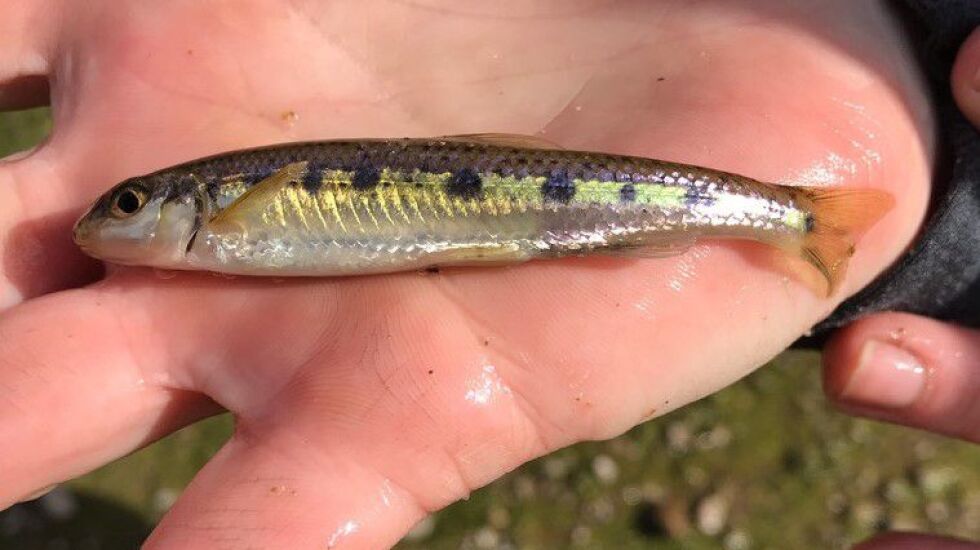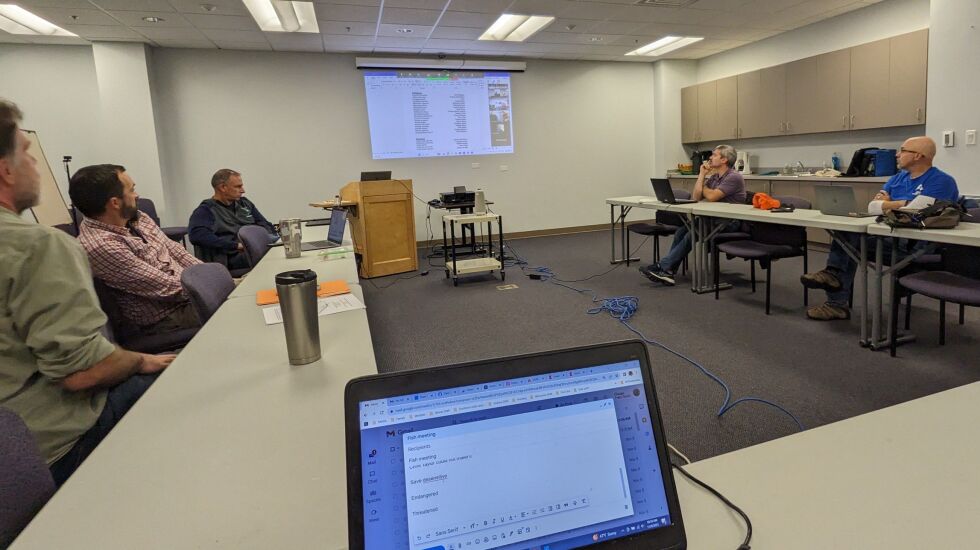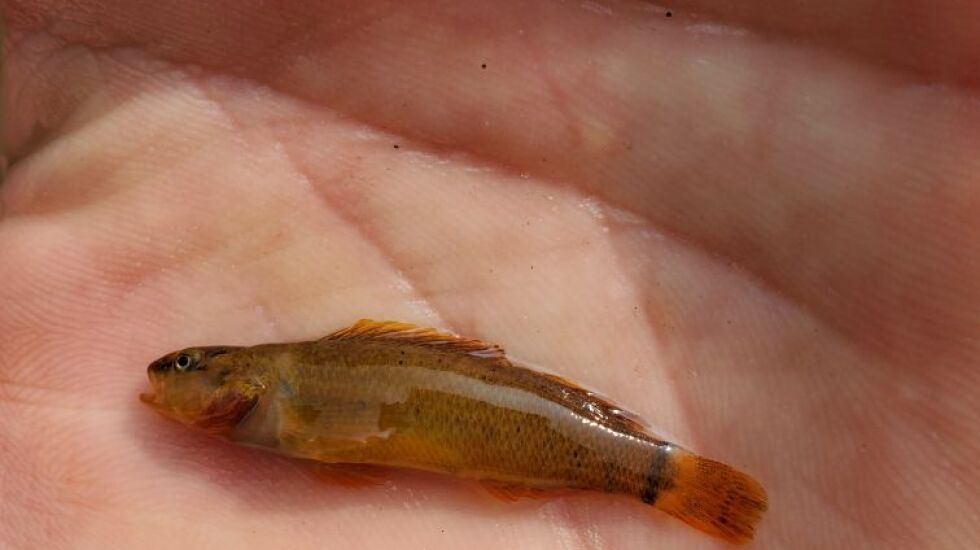
CHAMPAIGN, Ill. — Robert Colombo suggested the Illinois-endangered harlequin darter might be “a function of our sampling.”
“If we really wanted, we could find them,” he said. “I think this one warrants more study; that we directly sample them. Just like sand darter, [it] requires a certain type of sampling.”
I had never heard of harlequin darter until Nov. 9 attending the Fish Endangered Species Technical Advisory Committee meeting at the Forbes Natural History Building to assess the status of endangered and threatened fish in Illinois.
It sounded like a fish I should encounter. “An Atlas of Illinois Fishes: 150 Years of Change” describes it as “yellow-brown to green overall with 6-7 dark brown saddles, 7-11 dark brown blotches along the side of the body and a dark teardrop.”
In Illinois, it was historically found in the Wabash and Embarras rivers. In recent decades found only in the Wabash (and a 2019 record on the Ohio). Its habitat is “near woody debris and large stones in sandy and gravelly runs of small to large rivers.”
With that start, the committee went through the current list of 19 endangered and 17 threatened fish.
The Illinois Endangered Species Protection Board updates its list of endangered and threatened animals and plants every five years. The next update should be complete by 2025.
Illinois Natural History Survey’s Philip Willink chaired the meeting. Joyce Hoffman, chair of Illinois Endangered Species Protection Board, assisted on broader questions.

Participants included:
- John Chick, James Lamer and Jeremy Tiemann from the INHS.
- Brian Metzke, Trent Thomas and Steve Pescitelli for the Illinois Department of Natural Resources.
- Southern Illinois University’s Greg Whitledge and Eastern Illinois University’s Colombo.
Natalia Maass, IDNR Division of Natural Heritage Database Program, quickly pulled up data of findings of fishes and put on the overhead. She had an amazing amount of information.
Here are some snippets of discussions, first with endangered.
Thomas said he’s only seen one greater redhorse in his life. Pescitelli found a few in AuSable Creek and the Fox over his career. Willink said he’s had a few in the upper Illinois.
Lake sturgeon are interesting since the IDNR just stocked thousands and neighboring states have stocked them successfully for decades. I’m guessing lake sturgeon will move from endangered to threatened when the 2030 list comes.

The first big discussion came on the bluebreast darter. Thomas suggested moving them to threatened since they are “occupying all their historical range” on the Vermilion and doing quite well. A dissent came because it is such a small range.
The sturgeon chub has never had a juvenile found in Illinois, which suggests the individuals found here likely come from Missouri. A discussion ensued on whether such fish should be removed from the list.
Then the proceedings move on to fish in the threatened category.
A discussion came on spring cavefish and if the name should be changed to Shawnee Hills cavefish. Metzke said it is a different species than the one in Tennessee. Status would not change, but name would. Willink will check how to handle changing names in listings.
On the brassy minnow, Pescitelli said, “They’re pretty rare. I’ve only seen one in my whole career.” Willink said he’s seen one in Illinois.
Tiemann and Thomas will write the petition to move bluebreast darter from endangered to threatened. Tiemann and Willink will write the petition to move brassy minnow from threatened to endangered.
Four new species were voted to be listed as threatened.

On the Tippecanoe darter, the first record was in 2014 in the Vermilion. “I remember that day, ‘What the hell is this?’” Tiemann said.
Thomas and students will write the petition.
Streamline chub were found in Illinois with limited effort in the Vermilion.
“With dam removal, it s now an amazing system,” Colombo said.
Tiemann said, “I think they are there.”
Thomas and Tiemann will write the petition.
Trout-perch are found in Lake Michigan and the Illinois River, though Pescitelli found one in the Kankakee River in 1991. Pescitelli will write the petition.

The banded pygmy sunfish is found in the Cache River area. Whitledge said they are in areas similar to those of bantam sunfish. He will write the petition.
Petitions will be submitted to the IESPB by mid-2024. The IESPB will review them at its quarterly meetings. The list of plants and animals will be completed by late 2024, then sent to be approved by the legislature and signed by the governor in 2025. Public comment is included during the process.
The day of delving in minutia made me appreciate our variety of fish.
To see the current listings of endangered and threatened plant and animals species in Illinois, click here.







